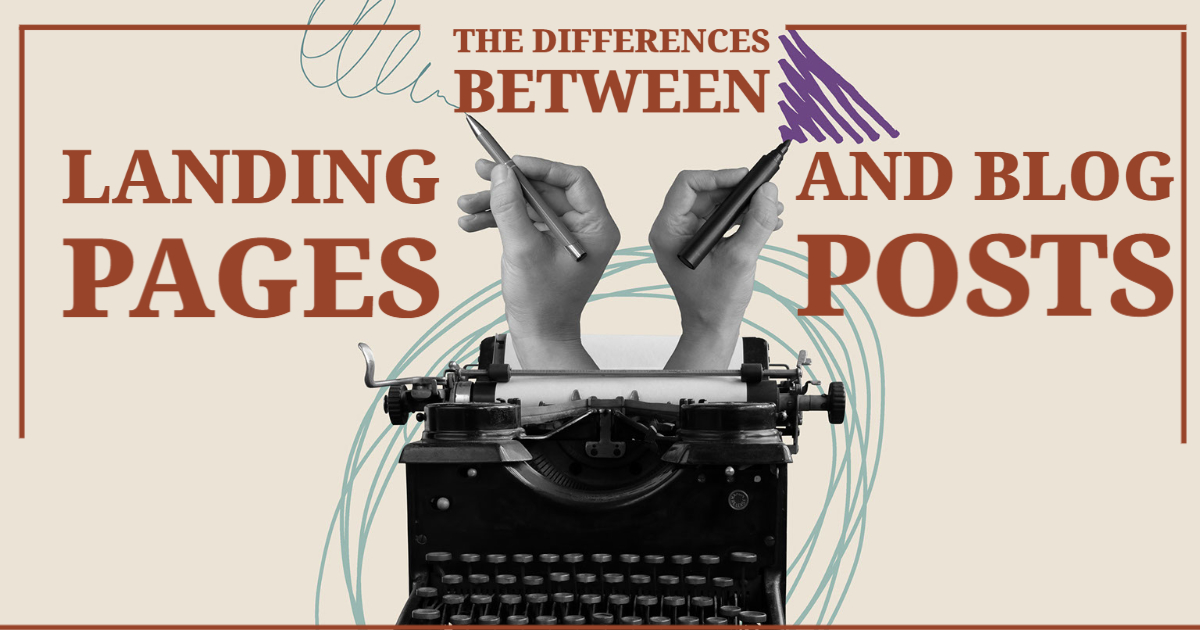In the vast and ever-evolving realm of digital marketing, two essential elements stand out: landing pages and blog posts. While they both serve as integral components of any successful online presence, there are distinct differences that set them apart. Understanding these disparities is crucial for crafting effective content strategies and achieving specific marketing goals. So, let’s delve into the dissimilarities between landing pages and blog posts, and how they contribute to the overall success of your online endeavors.
Landing pages are designed with a specific objective in mind – to convert visitors into leads or customers. They are targeted, action-oriented, and concise. A landing page usually serves as the entry point to a website, often through an advertisement or a search engine result. Its primary purpose is to capture the attention of the visitor and guide them towards taking a desired action, such as making a purchase, signing up for a newsletter, or downloading a resource.
On the other hand, blog posts are informative, engaging, and serve as a valuable source of content for your audience. Blogging allows you to create a deeper connection with your readers, providing them with relevant and valuable information. Blog posts are typically longer than landing pages, offering in-depth analysis, educational content, industry insights, and entertaining stories. They help establish your brand as a thought leader, build trust, and foster a loyal community around your business.
When it comes to the writing style, landing pages often employ concise and compelling copywriting techniques. They are characterized by powerful headlines, persuasive calls-to-action, and clear value propositions. The language used in landing pages is persuasive and direct, aiming to generate an immediate response from the visitor. It is important to keep the message focused, eliminate any distractions, and maintain a sense of urgency to drive conversions.
In contrast, blog posts allow for a more conversational and detailed writing style. They offer an opportunity to dive deep into a topic, present multiple perspectives, and engage readers in a meaningful discussion. Blog posts can be a blend of storytelling, analysis, and informative content, all wrapped up in an accessible and relatable tone. By incorporating personal anecdotes and experiences, you can connect with your readers on a more emotional level, fostering a sense of authenticity and building lasting relationships.
Another key distinction lies in the structure and organization of landing pages versus blog posts. Landing pages are designed with a singular focus, often containing minimal distractions and a clear path for visitors to follow. They employ elements such as compelling headlines, concise bullet points, and eye-catching visuals to maintain a visitor’s attention and guide them towards the intended conversion. Blog posts, on the other hand, often include subheadings, bullet lists, and images to enhance readability and break down complex information into digestible chunks.
In conclusion, landing pages and blog posts play distinct yet complementary roles in a comprehensive digital marketing strategy. Landing pages are laser-focused on driving conversions and capturing leads, while blog posts serve to educate, entertain, and build relationships with your audience. By understanding their unique characteristics and utilizing the appropriate writing style, structure, and content, you can maximize the impact of both landing pages and blog posts, ultimately propelling your online success to new heights.
Interested in blog writing and or landing pages? Sign up today!
Your Blog Today provides professional blog and landing page writing services for businesses, agencies, and individuals on a weekly and monthly basis. Professional writers create all of our written content in order to appeal to both your target audience, and the major search engines. Our blog posts are fully optimized for the highest level of search engine visibility in order to drive significantly more traffic to your website.



